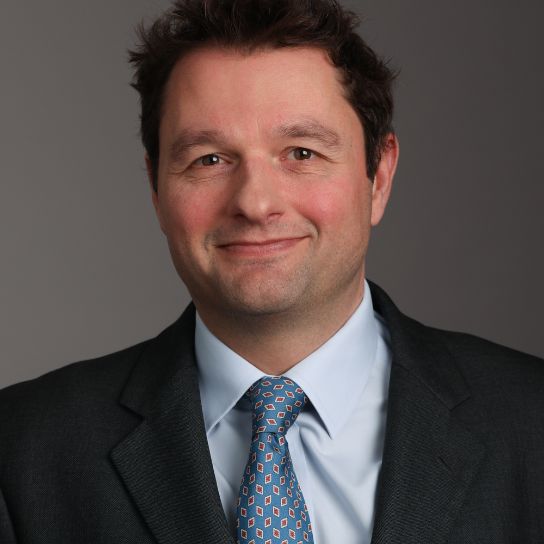On 18 June 2020, Birss J gave a judgment (see here) setting out his reasoning for granting a stay of the final injunction in favour of Edwards Life Sciences Ltd (“Edwards”) pending appeal, on the condition that Edwards gave undertakings to limit its supply of PASCAL to no more than 2 hospitals for the purpose of treating no more than 10 patients during the period that appeal was pending. The terms of these undertakings were similar to those given to the late Henry Carr J following an application by Abbott Cardiovascular Systems Inc., and Abbott Medical UK Ltd. ( together, “Abbott”), and Evalve, Inc. for an interim injunction pending the judgment at first instance.
This case confirms the pragmatic approach taken by the English Courts to stays of final injunctions. The Courts will consider the balance of justice between the parties in order to arrange matters so that the Court of Appeal is best able to do justice between the parties once the appeal is heard. The case also demonstrates the importance of each party’s evidence on irreparable harm and the impact of the status quo.
Background
By a judgment of 12 March 2020 Birss J found that Edward’s PASCAL Transcatheter Valve Repair System had infringed two valid patents held by Abbott (EP (UK) 1 408 850 and EP (UK) 1 624 810). After a further trial and another judgment of 12 March 2020, Birss J also rejected Edwards’ argument that a final injunction should not be granted on public interest grounds (see our summary here). This resulted in the grant of a final injunction in the form suggested by Abbott, which only contained a very limited carve out permitting the use of PASCAL in cases where implantation with Abbott’s device, MitraClip, had already been unsuccessful.
In this context, a form of order hearing took place before Birss J on 21 April 2020 in which he had to determine several consequential issues including a dispute over the term of the exception to the final injunction and whether that injunction should be stayed pending appeal if permission to appeal was given. At the hearing, Edwards argued for an order staying the injunction altogether pending appeal, contending that the number of PASCAL implantations likely to take place before an appeal was heard was small. Abbott contended that this would amount to Edwards in effect fully launching on the UK market, and was likely to cause substantial and unquantifiable harm to Abbott.
Previously, shortly after the proceedings were commenced in February 2019, Abbott had applied for an interim injunction to prevent Edwards from a full scale launch of PASCAL in the UK prior to the judgment in the substantive trial. Instead of granting an interim injunction, the late Henry Carr J accepted undertakings from Edwards to limit their supplies of PASCAL in the UK to no more than 2 hospitals for the purpose of treating no more than 10 patients in total.
In the current decision, Birss J rejected Edwards’ arguments seeking an unqualified stay of the injunction on the basis that it “was really a further attempt by Edwards to craft a much wider exception to the injunction, having failed at the public interest hearing, and without giving Abbott the opportunity to test the evidence on which that application was based in cross-examination”. Having given Edwards permission to appeal the substantive judgment, Birss J decided to grant a stay only if Edwards gave undertakings which were in the same terms as those they had given to Henry Carr J. Following further written submissions, an order to this effect was sealed on 5 May 2020. His judgment of 18 June 2020 provides the written reasons for his decision to grant a stay pending an appeal in exchange for the undertakings provided by Edwards.
Analysis of Birss J’s decision
In his judgment, Birss J applied the test for the exercise of judicial discretion to stay an injunction pending an appeal as set out in Minnesota Mining and Manufacturing Co v Johnson & Johnson Ltd [1976] RPC 671. This test was summarised by Birss J as being one of considering the balance of justice in which the lower court “will endeavour to arrange matters so that the Court of Appeal is best able to do justice between the parties once the appeal is heard”.
Birss J approached this question and the evidence before him from each party on the footing that the appeal in this case was likely to take place in about one year (the Appeal Period). To assess the balance of justice, Birss J sought to identify the potential irreparable harm caused to both parties and then consider the status quo.
First, Birss J considered the irreparable harm caused to Abbott by granting a stay of the injunction without any further limitation. He noted that the absence of an injunction in the Appeal Period (during which Edwards could do as it wishes) would result in Abbott losing almost half of the UK market exclusivity period for MitraClip arising from one of Abbott’s patents (EP (UK) 1 408 850) that had a “relatively short period” (~ 2 years) of its term remaining. Birss J disagreed with Edward’s evidence that the number of procedures it would carry out (ie, 30-40 procedures) with PASCAL in the Appeal Period if a stay was granted would be “small”. Instead, Birss J agreed with Abbott that this would amount to a full scale (or close to it) UK launch of PASCAL. In his view, such a launch would result in substantial irreparable harm to Abbott as (on Abbott’s evidence) it would lose opportunities to:
(i) capitalise on a reimbursed market for MitraClip that had resulted from years of investment in R&D, physician training, and clinical trials by Abbott; and
(ii) build its relationships with new centres/clinicians.
This unquantifiable harm to Abbott went beyond MirtraClip sales: if Edwards were able to launch PASCAL in more than the 2 hospitals it was permitted to do so by the undertakings pending trial, then it was likely to impact Abbott’s position in relation to its other devices with which it competes with Edwards in the UK (eg, Portico). This impact was in Birss J’s view “significant but hard to quantify”.
Next, he considered the impact on Edwards of refusing to stay the injunction, which would:
(i) delay its commercial launch in the now reimbursed UK market; and
(ii) deprive it of an opportunity to build relationships with UK key opinion leaders, which would prevent them from having access to PASCAL and educating clinicians internationally about its qualities.
On this basis, Birss J recognised that if the stay of the final injunction was refused altogether, then Edwards would suffer unquantifiable harm.
Finally, Birss J considered the status quo, which was that Edwards was on the UK market but only in accordance with the undertakings given to Carr J.
In reaching his decision, Birss J sought to strike a balance between the extremes proposed by both parties (ie, between no UK launch of PASCAL and an unfettered launch), and maintain the status quo. As the Appeal Period was similar in length to the duration for which Edwards had provided undertakings at the preliminary injunction stage, he allowed Edwards to carry on activities under similar undertakings pending appeal. Therefore, Edwards was allowed to supply its PASCAL device in the UK to no more than 2 hospitals, and a fresh limit of ten patients was set by the judge. In the judge’s view, this allowed “Edwards to maintain the relationships it has already built up relating to PASCAL in the UK and maintain a UK presence, without expanding it significantly until after the appeal”.
Key contacts
Disclaimer
The articles published on this website, current at the dates of publication set out above, are for reference purposes only. They do not constitute legal advice and should not be relied upon as such. Specific legal advice about your specific circumstances should always be sought separately before taking any action.


